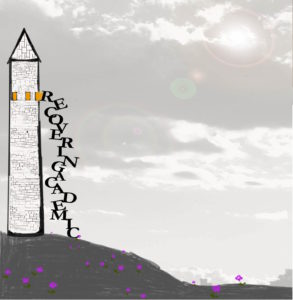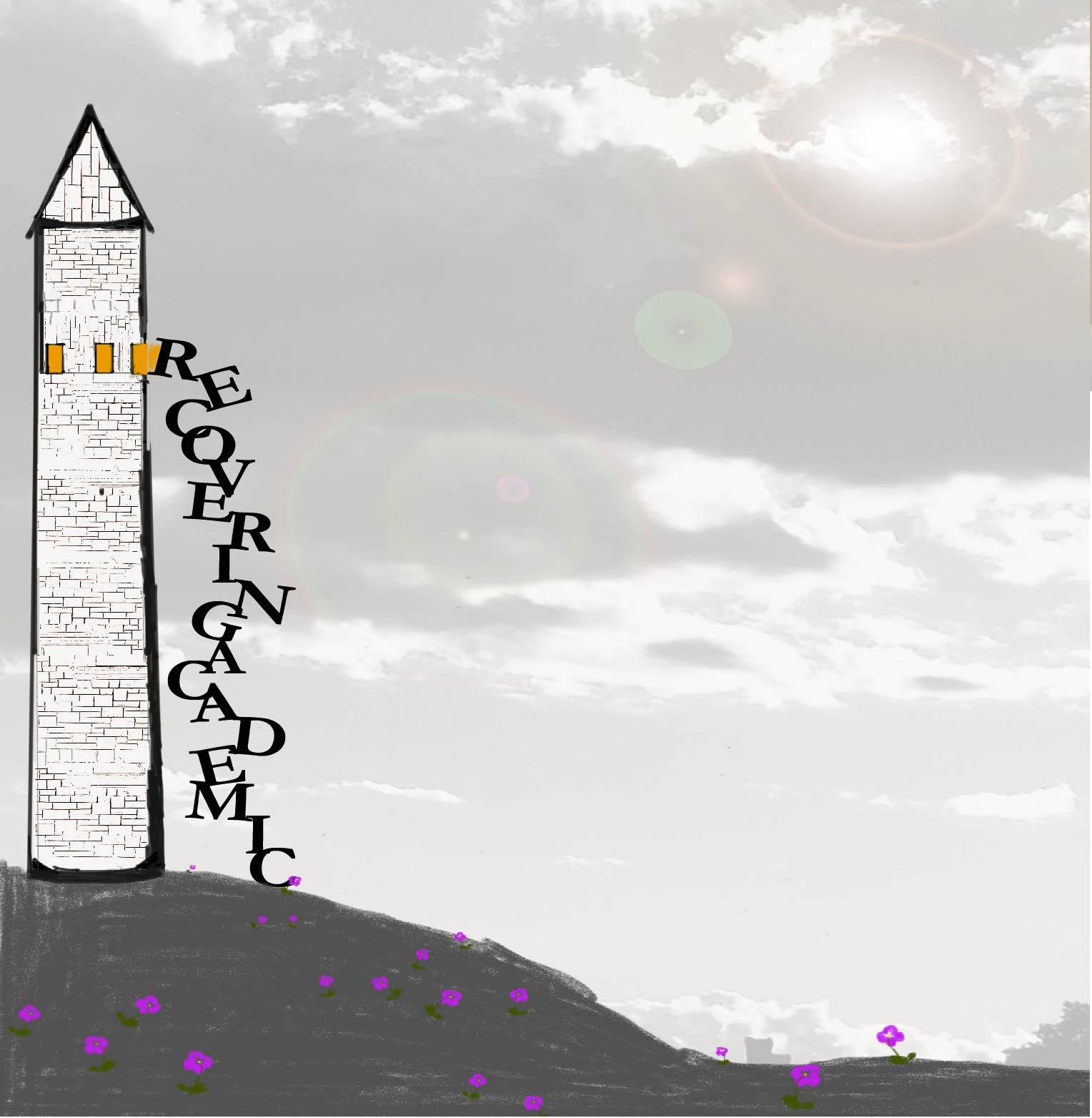This is a guest post from Ania Gruszczynska. More about her at the bottom of this post.
I’ve told my transition story quite a few times and six years out the Cliff notes version just says “I’m a sociology PhD turned IT project manager”. It’s nice, concise and feels complete; told that way it is almost a straight progression from A to B. It wasn’t nearly as straightforward and I’ve recently been thinking about versions of the story I’ve told to others and most importantly to myself.
A lot of stories about leaving academia include a turning point. I never had that “road to Damascus” moment, a clear break.
I had an interesting experience a couple of months ago when I took part in a recording of an episode for the “Viva survivors” podcast which focused on my experiences of what is the culminating point of the British doctoral system. For the non-UK readers, the viva is a peculiar aspect of British academic culture where you toil on your thesis for three or more years, with input from your supervisory team, usually comprised of two people, the primary and secondary supervisor.
Once the thesis is ready, it is sent off for examination to two independent examiners who had no involvement in the process whatsoever and will be the sole arbiters of whether you are worthy of the title or not. Before the podcast, I was trying to recall the circumstances of my own viva. I could picture my supervisor’s tiny office, I wanted to be in a room I was familiar with and I wanted her to be present even though according to regulations she had to stay silent throughout the entire viva, yet another quirk of the process. I could see quite vividly the external examiner, a big, soft bloke I’d met previously through my activist connections and the internal examiner, a specialist in social movements in my department, a tall guy with distinctive dreadlocks and quite an imposing presence.
I was pretty sure the whole affair took place in perhaps early spring and remembered my friend waiting outside for me and the massive chocolate cake we had later to celebrate. Funnily enough, I couldn’t exactly remember my thesis title or the questions posed during the viva so I decided to dig out some old emails just to double-check the details in preparation for the recording.
Well, turns out that even though six years ago I was sure the details of the day (and my thesis!) would be forever etched in memory, that wasn’t exactly the case. To start with, I was shocked to realize I no longer remembered the title of the thesis, something that would have felt unthinkable to me during the three years when I was living and breathing the project. Secondly, I misremembered quite a lot of details about what happened in the room where my fate as an academic was being decided. The guy with dreadlocks was chairing the viva, not acting as an examiner. I completely forgot there was one more person in the room, the actual internal examiner from the psychology department, whose specialism was in sexualities and that’s how she ended up on the panel.
As part of career planning, many exercises that boiled down to “imagine yourself doing your ideal job”
…the chasm between where I was and what I wanted, a permanent job that didn’t leave me feeling in limbo, was too great and unimaginable.
In addition to being a fairly lousy narrator of my past I need to add that I was equally rubbish in narrating any reliable version of my possible future self. When I came back into that room to hear I would indeed be awarded a doctorate in sociology subject to some minor corrections, the only future I could imagine for myself was that of an academic. In January 2010 I was working as a research assistant, a job I saw as a temporary measure, something that allowed me to stay in the “game” as I applied for academic jobs, got publications and carried on the path that began five years before when I decided to channel my passion for Polish LGBT activism into researching the movement and its strategies.
A lot of stories about leaving academia include a turning point. I never had that “road to Damascus” moment, a clear break. I knew something wasn’t right but didn’t know how to fix it, I knew I’d lost the drive to put countless hours into activities required to build a perfect CV to land an academic job. I knew what the ideal CV looked like, I knew I had to publish, network, write grants.
Except I didn’t.
I spent a couple of years going from one fixed-term research assistant contract to another, becoming an accidental project manager overnight as a last-minute replacement for somebody who left unexpectedly. I didn’t have much of a plan and wasn’t really trying to “transition out of academia”, I was merely watching myself not following the path that once was so clearly drawn out for me, seemingly unable to imagine an alternative future.
Yet this was something that I saw recommended time and again in various guises. As part of career planning, many exercises that boiled down to “imagine yourself doing your ideal job” but the chasm between where I was and what I wanted, a permanent job that didn’t leave me feeling in limbo, was too great and unimaginable. I now think some of that guidance overemphasizes the power of the narrative, and it wasn’t really necessary for me to be able to imagine what the future would look like, it was much more important to start doing things that kicked me out of my inertia.
…some of that guidance overemphasizes the power of the narrative…it wasn’t really necessary…to imagine what the future would look like
…it was much more important to start doing things that kicked me out of my inertia.
To cut a long story short, I started the painful process of learning how job-hunting worked as I truly had no clue. I kept bombing interviews and going through a painful cycle of randomly applying for mostly unsuitable roles, getting rejected and vowing not to do it again for at least a couple of months; rinse and repeat. After yet another rejection, my wife called up an interview coach and gently suggested that I attend the appointment. And no, that wasn’t really the turning point either as it took six more months and fifteen more interviews to secure the role I’m in at the moment.
I’m an IT project manager. Which, twelve months in, sometimes feels like it’s a story happening to somebody else. I occasionally catch a glimpse of myself, a woman in her mid-thirties in fairly professional attire sitting through many meetings, uttering with the best confidence she can muster words such as “multi-factor authentication”, writing project plans, being referred to as the “IT professional”. This is a twist in the story I never imagined when I sat in that room during my viva.
I get asked if I miss academia and the truth is I do sometimes. I still cling to some vestiges of academia. I cannot bring myself to throw out the books I’ve had since I started the PhD and that have travelled with me when moving countries and homes. I normally have no qualms about decluttering and I haven’t opened these books for over six years now but they belong to a version of past me that had the absolute certainty where she was going. Six years out, I still occasionally grieve the loss of that certainty, the disruption in the narrative. I’m not sure whether I have any words of comfort for others going through a similar process. All I can say is that it will be messy and uncomfortable and may not make sense, even in retrospect. At the same time, not knowing how the story ends shouldn’t preclude anyone from taking action and taking a leap of faith. At least I’m glad I did.

Photo courtesy of Ania Gruszczynska.
Dr Ania Gruszczynska completed a PhD in sociology at Aston University in Birmingham, UK in 2009 and has since worked in a variety of project management roles in higher education sector. She is currently working as an IT project manager at Birmingham City University where she is responsible for software projects and developing good project management standards. In addition, she is a qualified coach and brings her understanding of post-PhD transitions into her part-time coaching practice (phdcareercoach.co) where she supports people who have big goals such as finishing a PhD or transitioning into a more fulfilling job. She is also a keen runner and a yoga fan, and tweets about her passions at @akgruszczynska.

